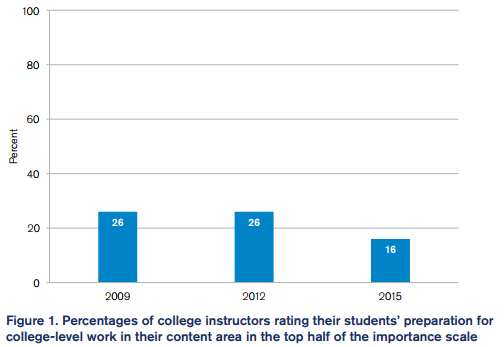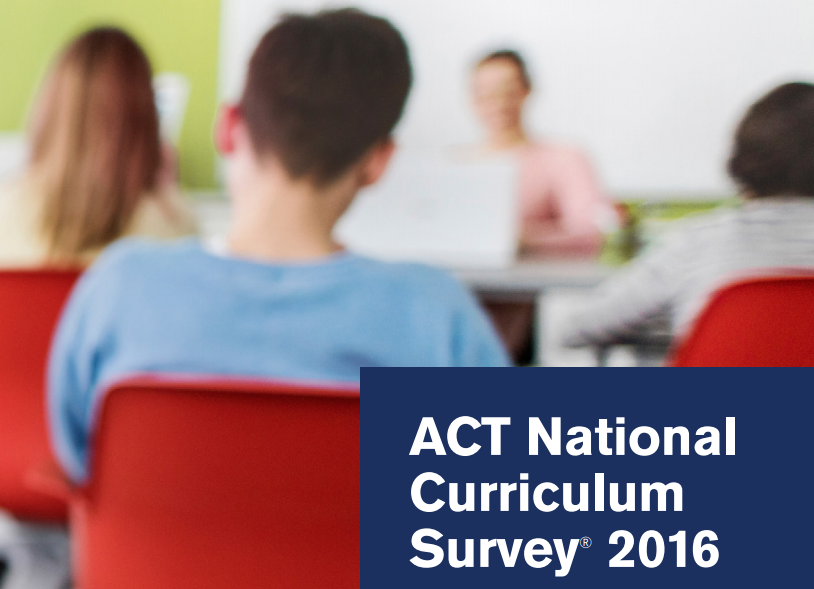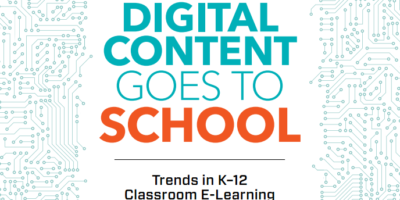The need to prepare students for college and work success is still of paramount necessity in K–12. Every few years, ACT conducts its ACT National Curriculum Survey® to ask educators about what they teach (or don’t teach) in their courses and how important they feel various topics in their discipline are for students to be successful in these and future courses. The survey also asks educators for their perspectives on educational topics of current interest, such as academic standards, the college readiness of their students, the use of technology in the classroom, barriers to student success, and how best to improve outcomes for under-served students. In the latest edition of the National Curriculum Survey, 9,266 educators in the United States responded, including 2,252 at the college level.
Key Findings
- Among teachers reporting any degree of familiarity with the Common Core, 42% believe the standards are either “a great deal” or “completely” aligned with college instructors’ expectations regarding college readiness. However, the percentage of college instructors who reported that their incoming students are well prepared for college-level work in their content area has declined.

- Readiness for education and workplace success is not limited to academic achievement alone: Other dimensions, including behavioral skills (interpersonal, self-regulatory, and task-related behaviors important for successful performance in educational and workplace settings), education and career navigation skills (the personal characteristics, processes, and knowledge that influence individuals as they navigate their educational and career paths), and cross-cutting capabilities such as technology and information literacy, collaborative problem solving, thinking and metacognition, and studying and learning, are just as important.
- The availability, sophistication, utility, and potential of computer technology, both in the classroom and on the job, make it increasingly incumbent upon the education system to teach the skills necessary for students to interact effectively with technology and to understand the ethics attached to its use.
Policy Recommendations
- States should maintain their commitments to implementing challenging academic standards in the classroom by ensuring through statute or regulations that all schools in a state adhere to the same set of standards with the goal of preparing all students for college and career.
- States and/or local educational agencies should develop ways to measure and track the progress of students’ development of nonacademic skills, and support schools integrating the teaching of these skills into their instruction.
- States and districts should invest resources into technology-use training so that teachers can better prepare students to use technology, especially in the context of new assessments.
- States and local educational agencies should use funds allotted under the Every Student Succeeds Act to provide professional development for teachers on ways to make effective use of the results of large-scale assessments.
Source: ACT, Inc.


![GettyImages-613021256[1].jpg](https://schoolviews.org/wp-content/uploads/2017/12/HERO_1511290414094-null-HR-400x200.jpg)



What's your view?